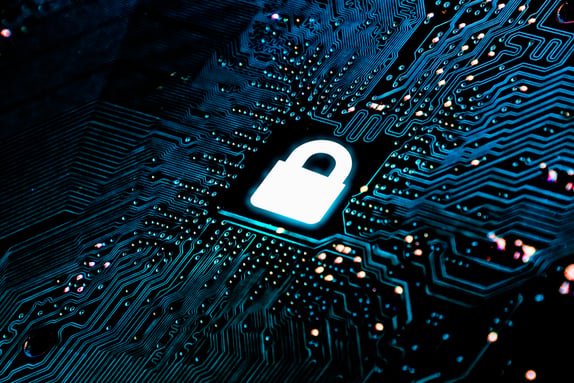What Is Data Encryption & How Does It Protect Me
Fri, Jul 15, 2022
By: Jacob Gilmore

Data encryption is the process of making digital files and emails unreadable by anyone who does not have the key. It keeps your data away from prying eyes, identity thieves and hackers. If you were to try to read an encrypted file without the key, it would be a mess of jumbled letters and / or numbers. An example of data encryption is online banking. When you pull up your bank account, you access the data through 128-bit encryption. Thus, only you can see your bank account information.
Using Data Encryption
You can use data encryption in emails, on websites, and just about anywhere you want to protect data. You often use data encryption without realizing it, such as when you access your bank account online and when you make a credit card transaction online. The data encryption software is sometimes referred to as a cipher or encryption algorithm. If you have enough computing power, you could break some encryption. Thus, it is important to use something secure for private and confidential information.
Encryption is either symmetric or asymmetric. A symmetric key is a secret key that encodes and decodes the data. An asymmetric key is a public key. It works with a private key. Anyone can encrypt files using a public key, but the recipient must have the private key that goes with it.
Why You Should Use Data Encryption
Many people and businesses keep data in the cloud. As you upload and download data, hackers can steal it if it’s not encrypted. The cloud provides additional space for data and allows you to access it from any device. Cloud servers are responsible for protecting data in the cloud but not for transferring to and from the cloud.
If your business has confidential data for your customers, you must keep it safe from hackers and other malicious use. Encrypting the data provides that protection. If you do have a data breach, you should be able to prove that the data was encrypted on your servers and as it is transferred back and forth to and from the cloud.
If your business offers an online portal so that customers can access their information, such as you see with medical offices where patients can view and download their medical records, that data must be encrypted.
Contact Gilmore
As important as protecting digital data is protecting physical data. The documents you keep in your office should have as much protection as digital data. Clearing out files, shredding old documents and files, and keeping all paper documents under lock and key are the best ways to ensure that those documents do not fall into the wrong hands.
Ensuring that you have a written work-from-home policy for physical and digital data also helps protect the business from breaches. Employees should have computers with encryption for transferring data files back and forth, as well as a plan to handle physical documents.
When business owners implement a policy to protect physical and digital documents, they have less of a risk of having a data breach. As part of the data protection policies, businesses should have locked shred boxes to deposit old files and digital storage media into. Gilmore provides shredding of paper, USB drives, hard drives, and other digital media.